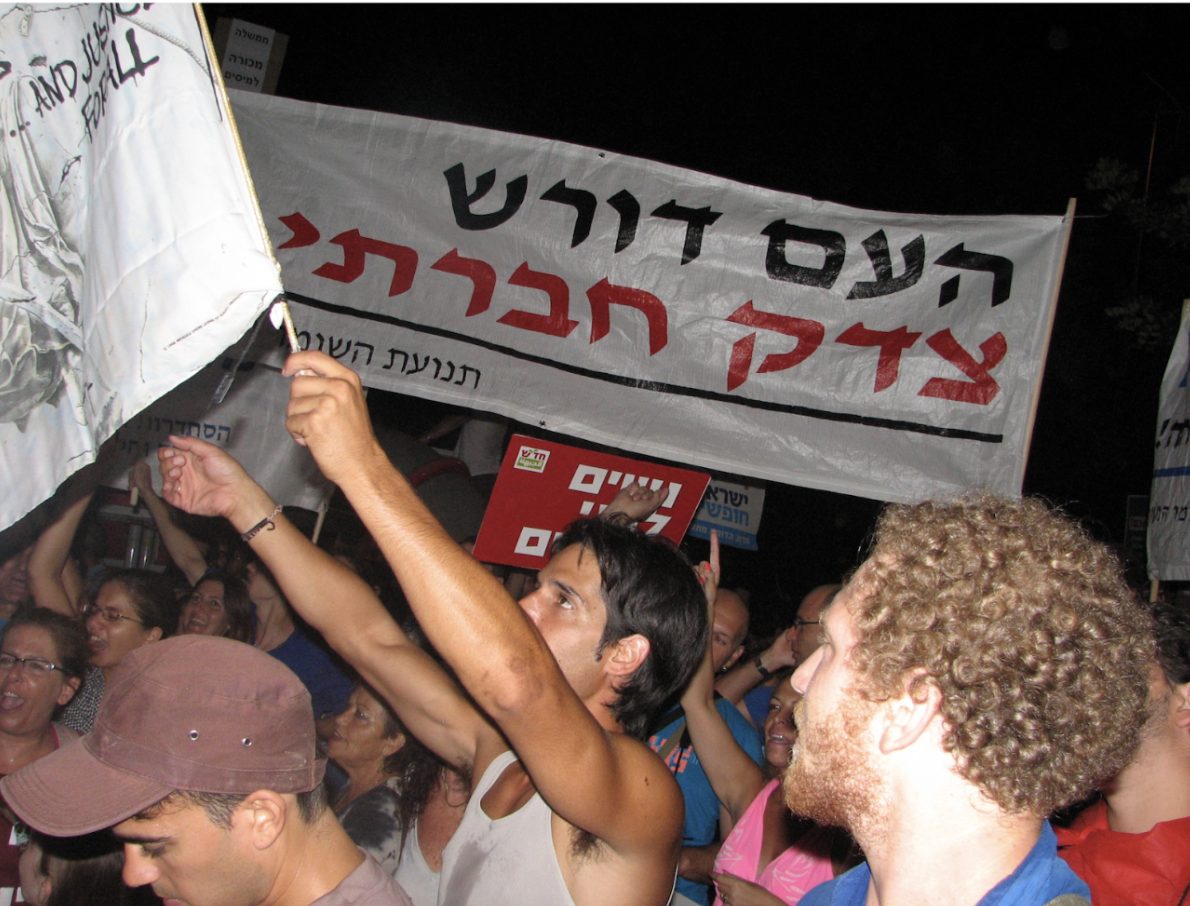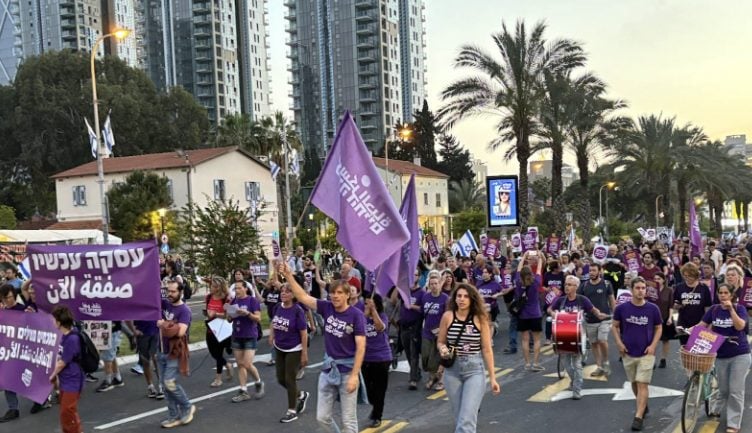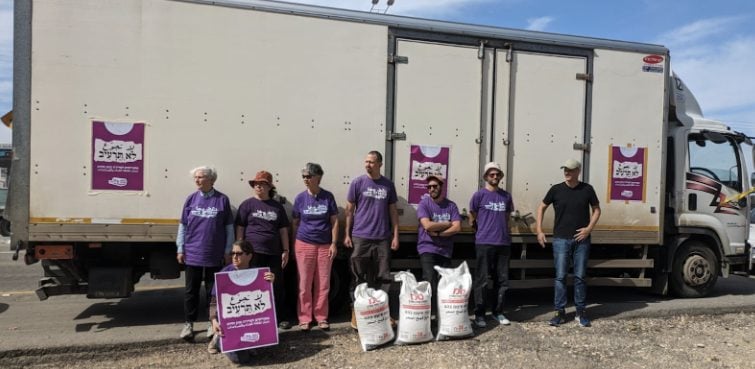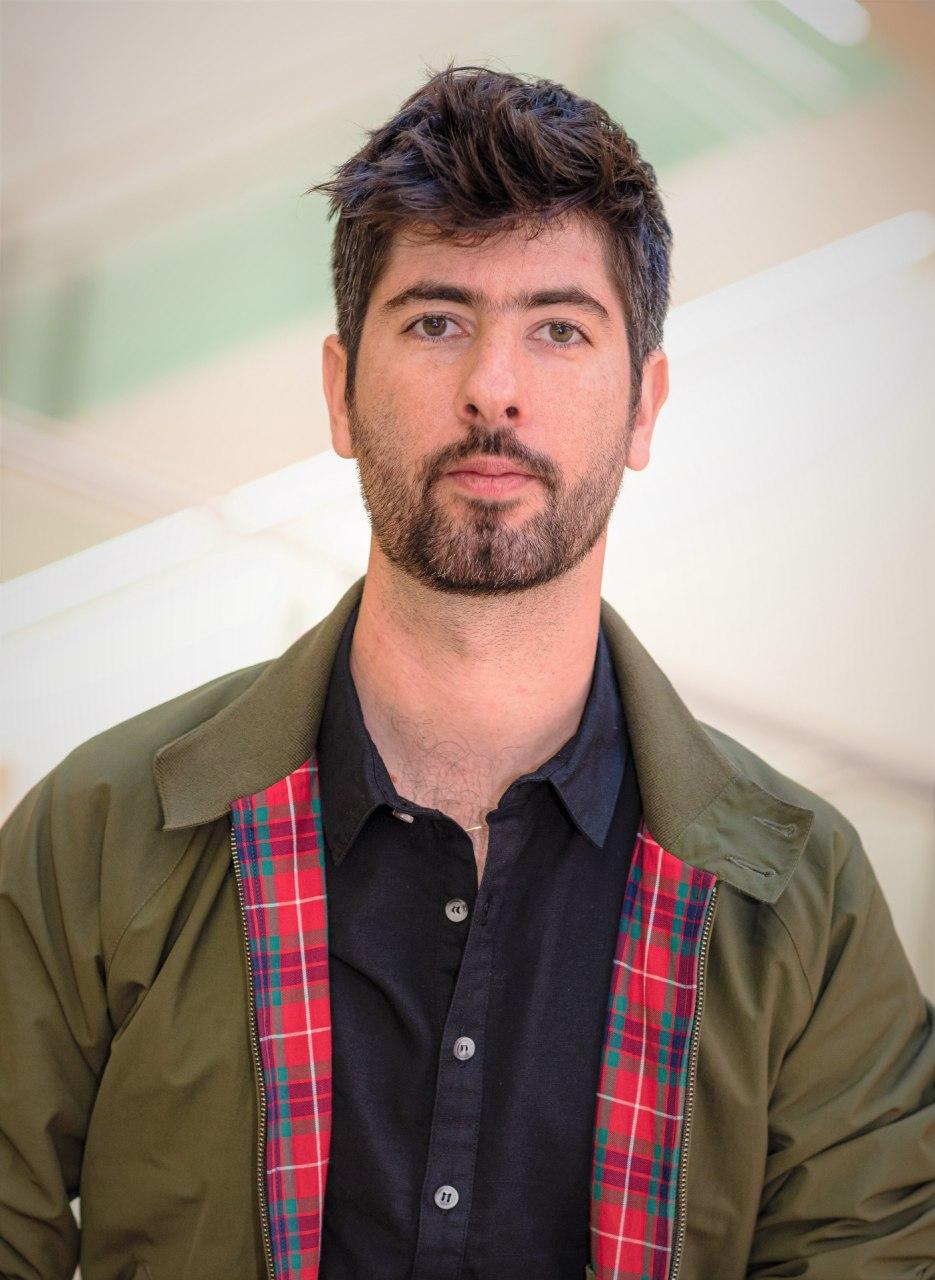The War in the Gaza Strip has been going on for over seven months. In this time, it has cost the lives of over thirty thousand, injured tens of thousands more, displaced hundreds of thousands, destroyed cities, and brought hundreds of thousands to a state of hunger or famine. However, on the morning of April 9th, I had a conversation that gave me hope.
Alon-Lee Green is a leading Israeli activist. He founded the largest Israeli-Palestinian grassroots movement, Standing Together, in 2015, which aims to ‘mobilise Jewish and Palestinian citizens of Israel in pursuit of peace, equality, and social and climate justice’.
Though Green has received much media attention in recent months, his activism began nearly 20 years ago, while working for a local coffee shop in high school. His attempt to unionise restaurants in Israel led him to be fired from his job; but the story didn’t end there. “A judge ruled they must reinstate me, and after a six-week-long strike we won and gained a collective agreement”, he tells me. The ruling was “historic in Israeli terms, [in demanding] we receive all legal rights for workers”.
Though he “didn’t have the language for it yet”, Green began to appreciate the power of collective action. Nazir, a Palestinian citizen of Israel was one of the five union leaders who stood alongside Green at the time. “For the first time in my life, I understood the power of organising people, even if they are very different from you”, he says. To a young Alon-Lee Green, it had seemed mystical that a Palestinian could lead hundreds of Muslims and Jews in Israel, but from this experience, he saw it was possible.

Several years later, at 22 years old, Green was among the leaders of Israel’s 2011 “social justice protests”, one of the country’s largest-ever protest movements. “It was a crazy and magical summer”, he recalls. “Tent cities and hope spread across the country carried by the belief that we will bring true change”. Yet, Prime Minister Benjamin Netanyahu rejected the movement’s demands and “hope quickly turned to despair”. Despite the setback, Green understood that “leading people is not enough, organising them for the long term is needed” and began to look for a way to enable a unified political struggle, in which Jewish and Palestinian Israelis could be united in their demands.
These earlier lessons laid the foundation of Green’s current organisation Standing Together, a “grassroots movement mobilising Jewish and Palestinian citizens of Israel in pursuit of peace, equality, and social and climate justice”. For Green, its purpose is “to build power in the struggles for peace and against The Occupation, for social justice and for full equality for all the people living here”.

Green tells me that the supporters of Standing Together are unified by a shared understanding, “a shared language, and consciousness about the reality in Israel. What is special about Standing Together’s members and participants is [that] they believe people of all national identities deserve full equality, liberty, and independence”. Standing Together aim, “is not about standing in solidarity with Palestinians, it is a shared struggle for the interests of both Palestinians and Israelis, which will arise from a solution that works for all”.
Although Standing Together is a relatively small organisation, it still receives substantial attention and is criticised across the political spectrum. The Israeli right sees them as the extreme left that is detached from the Israeli public. The Israeli far left criticises it for compromising on the Palestinian cause to increase their public reach. And, the international Boycott, Divestment, and Sanction (BDS) movement opposes it for being “an Israeli normalisation outfit that seeks to distract from and whitewash Israel’s ongoing genocide in Gaza”.
Green seems unfazed by critique, regardless of its ideological origin, believing that Standing Together’s achievements are proof they are doing the right thing. He views such criticism only as an ideological barrier to preventing a larger base of people from engaging with the movement. This philosophy, of prioritising action over speech and efficiency over form, has guided Standing Together over the years and continues to do so during the War in the Gaza Strip.

Throughout the current war, Standing Together has consistently challenged the Israeli public and government, ever pushing it leftwards. They were the first Israeli organisation to demand a cease-fire and the first Israeli organisation that created humanitarian aid shipments to the people of Gaza. Their aid convoys, however, were stopped several kilometres before reaching Gaza by Israeli police forces. When it became clear the shipment would not reach Gazans, Standing Together diverted it to Palestinians in the West Bank.
Beyond Palestine, Israel, and the current war, I asked Green about activism globally. Over the years, Green has learned from movements in the Middle East, Europe, and the United States. For instance, during the global waves of protests in 2011, the Israeli protesters borrowed a phrase from Cairo’s Tahrir Square: “The people demand social justice”. In addition to echoing across national borders, this phrase broke barriers within Israeli society, as Israelis and Palestinians alike supported the cause. “It was chanted in Arabic in Nazareth and Haifa, and in Hebrew in Tel Aviv and Jerusalem. It was the first time in Israeli history that the phrase ‘the people’ was not [referring to just] the Jewish people.” The movement had encompassed the entire population, regardless of religious, national, or ethnic distinctions.
In the spirit of learning from international activists and movements, I hoped to get some tips from Green about what individuals who care about political issues should do. Above all else, Green believes that people should utilise their electoral power. “Take your political system very seriously,” he advises. “Your government has a huge impact on your own life and on what happens in Israel, Palestine and around the world. You can create broad coalitions that demand change from your governments”.
Despite the clear dialogue with activists Standing Together maintains across continents, there appear to sometimes be substantial differences in their respective attitudes, specifically towards language. “Occasionally, people think the terms you use are more important than what you really do”, Green says. During meetings with activists in the United States, after Green detailed the actions the movement was taking to deliver humanitarian aid to Gazans, he was asked in response why Standing Together didn’t use what Green terms “buzzwords”. “OK”, he says, “words matter, but actions matter more”. Conversely, Green’s position on language may be one of the reasons why movements like BDS criticise Standing Together and see it as “a normalisation outfit”.
I ended the interview by asking Green about which sources of information he would recommend on the Israeli-Palestinian conflict and the War in the Gaza Strip. “It’s a good question, but I am not sure I’m the best person to ask this”, he says. Green, as an Israeli, reads mostly Israeli outlets Haaretz and Local Conversation, which offer a “very Israeli angle”, which is informative, but not necessarily what everyone needs. He suggests following local people on social media, who report and film their personal experiences.
In addition to Green’s recommendations, other sources of information can be found through Solutions Not Sides’s weekly news brief, where they provide articles from Arabic, Hebrew and English mainstream, verified media outlets. With this, they capture “what is being said about the Israeli-Palestinian conflict from different perspectives”, without influence from blogs, think tanks or unverified news outlets. Furthermore, Avi Shlaim, Emeritus Professor of International Relations at Oxford and one of Israel’s “New Historians”, recommends two books to understand the conflict. First, Deluge: Gaza and Israel from Crisis to Cataclysm by Jamie Stern-Weiner, published in April 2024, covers the context leading up to October 7th and possible ways forward. Second, he recommends The Hundred Years’ War on Palestine: A History of Settler Colonialism and Resistance, 1917–2017 by Rashid Khalidi, as “a work of outstanding historical scholarship” which “presents compelling evidence for a revaluation of the conventional Western view of the subject”.
Green’s words continue to resonate weeks after our interview, as the war continues and around the world activists escalate their struggles. Green believes everyone has what it takes to be an activist. “We live in a crisis-riddled world where there are many opportunities, but the powerful minority reaps them while the majority suffer.” He says. “Throughout history, what broke these dynamics [of exploitation] was the people who forced change on their political system. We need to remember the saying, ‘if we won’t liberate ourselves, we won’t be liberated at all’ – and that is a real possibility”. Green speaks from years of experience, of both success and failures. But looking at the current state of Israel politically, economically, militarily, and morally, one cannot think his words are overly idealistic.


